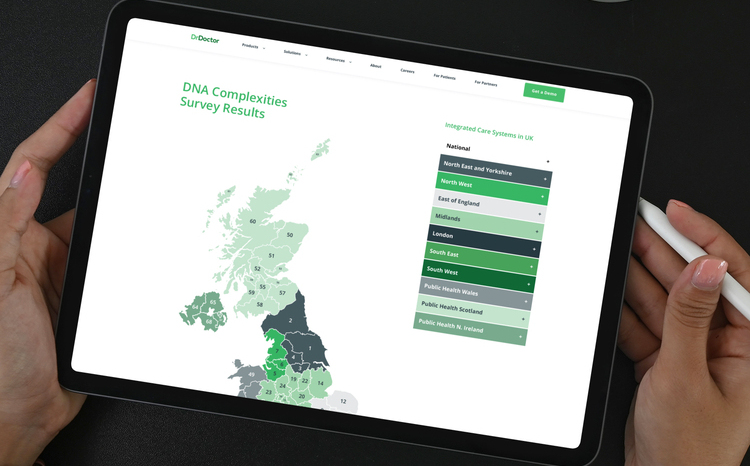Study finds two-thirds of UK GP surgery websites have accessibility errors

A study into UK GP surgeries’ websites by Nexer Digital has found that two-thirds (66%) of sites have detectable design errors, potentially excluding one in five users.
The research by Nexer Digital, a human-centred research, design and development company, showed that 66% of websites returned at least one fault based on WCAG standards, a set of guidelines all public sector bodies must meet as required by the government since 2018.
The audit found the average UK GP surgery website has three errors on its homepage, with the most common errors including poor colour contrasting text, empty links, empty buttons and missing headings, making it difficult for people with low vision and those that use assistive technology to access websites.
An inadequate level of contrast between the text colour and the background of a webpage results in users with vision-based disabilities being unable to read text and understand information.
Almost a quarter (24%) of the GP surgeries’ sites also contained hyperlinks which do not contain text or describe its destination, causing potential confusion for users being taken to an unspecified webpage or form.
Hilary Stephenson, managing director at Nexer Digital, said: “The UK’s GP practices are being sold websites and digital platforms lacking in core accessibility.
“These digital products are also supplied without sufficient and continued support to maintain their content and how it is displayed online, not just to the naked eye but through accessibility tools.
“Suppliers also have a duty to educate GPs and practice staff who will be contributing to the website after the procurement process on the nuances of accessibility.
“The content of a website is distinct from the platform itself, and people in a GP practice may not have an awareness of how to accommodate for access needs digitally. This leads to unwitting GP surgeries providing websites that aren’t accessible to a sizeable proportion of their potential users.”
The audit was released on Global Accessibility Awareness Day (GAAD), an event that focuses on digital accessibility and inclusion for the more than one billion people with disabilities and access needs worldwide.
Stephenson added: “The onus falls on those commissioning the digital products from platform vendors, not the primary care providers. In addition, the vendors themselves should be creating products with accessibility at their core to begin with.
“Our audit and industry feedback would suggest that this is not the case. Failure by the vendors is also coupled with a lack of investment in digital skills training and roles within the healthcare sector.
“The government is at risk of increasing pressure on GP practices without providing them with user friendly systems and adequate service design. If more people are expected to find a solution to their health problem digitally an urgent rethink on how platforms are funded and created is needed.”
It was revealed in a Digital Health News industry roundup in January that Nexer Digital has been chosen to deliver a six-month digital transformation programme that will support Research Data Scotland’s mission to simplify and speed up access to public sector data.




